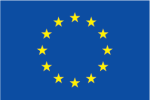Although it might look like a simple question, the answer, on the other hand, is not that obvious nor straightforward! If in one hand it is safe to assume that most high school students are the future University students, at the other hand, these young students have little experience concerning Academic and Research Integrity issues, nor have these concepts well defined in their heads.In fact, most of the issues experienced at high school level focus on plagiarism and authorship. Adding to that is their perceived conflict of being a good student or being a good friend, when it comes to reporting a misconduct or unethical behaviour from their peers (Goddiksen et al. 2020).
At the same time, high school students are at a unique transitional period from childhood to adulthood, where they form opinions from their daily life, based on the information received and experiences lived. So, how to combine nearly no knowledge nor experience in Academic and Research Integrity, with the unique opportunity that adolescence brings, to empower young students into responsible academic and research practices? Does it even make sense to teach integrity at such an early academic stage?


Leave a Reply